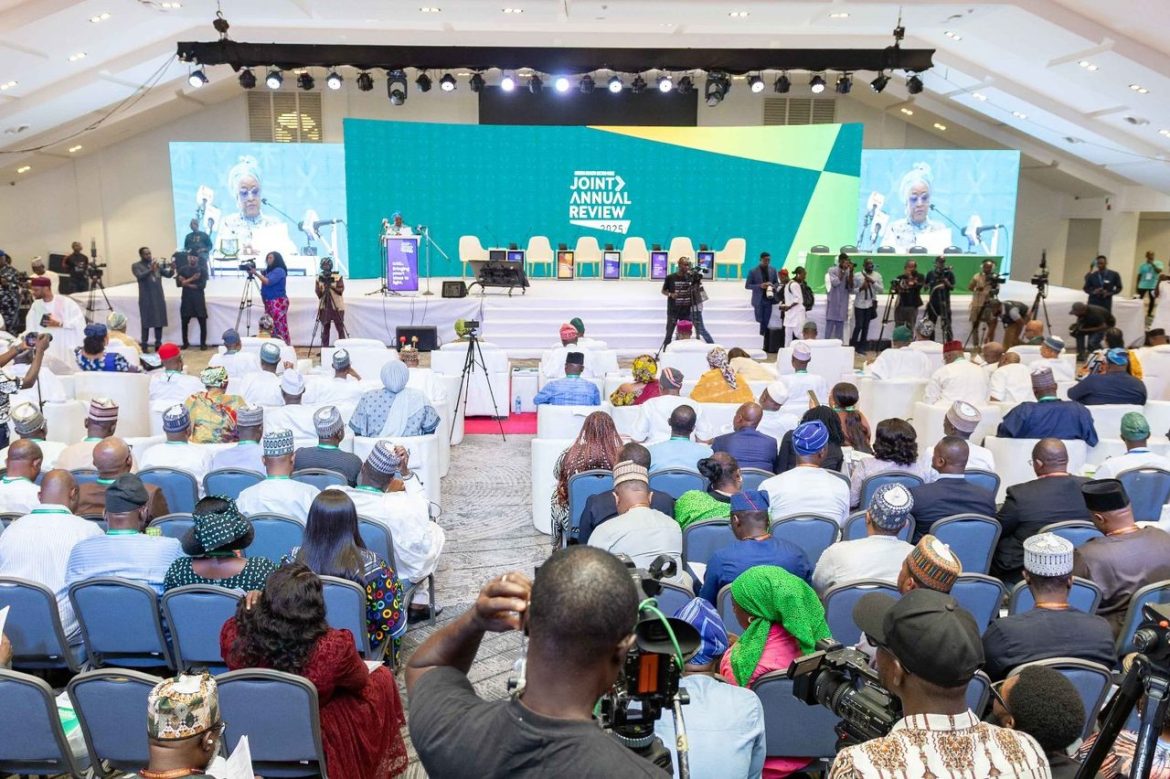By Iyemah David
The Federal Government of Nigeria said the 2025 Joint Annual Review (JAR) of the health sector will showcase Nigeria’s strides in performance, enhanced accountability and strengthened collaboration among all actors driving healthcare delivery.
Ms Daju Kachollom, Permanent Secretary, Federal Ministry of Health and Social Welfare, stated this on Wednesday in Abuja at the opening of the 2025 JAR.
Kachollom said the review, with the theme “All Hands, One Mission: Bringing Nigeria’s Health Sector to Light,” provides a critical platform to assess progress, celebrate successes and identify gaps in achieving Sustainable Development Goal 3 (Good Health and Well-being).
She said the exercise would highlight the improved partnership between federal and state governments, development partners and the private sector in promoting accountability and transparency in the health system.
According to her, while maternal and child mortality rates are declining and immunisation coverage has improved, service coverage and financial protection remain inadequate, signalling the need for deeper investment and policy reforms.
She added that the theme of the review reflects the commitment to unity, evidence-driven policy and innovation across all levels of the health system.
Dr Salma Ibrahim Anas, Senior Special Adviser to the President on Health, restated President Bola Tinubu’s commitment to placing health at the centre of national development. She urged stakeholders to sustain multi-sectoral collaboration to tackle systemic challenges and ensure that no Nigerian is left behind.
Representatives of key stakeholders also shared insights on progress and challenges.
President of Healthcare Federation of Nigeria, Dr Njide Ndili, underscored the importance of private sector participation, citing ongoing initiatives in health insurance, local manufacturing and public-private partnerships to expand access to quality healthcare.
Speaking on behalf of the Health Development Partners Group (DPG), Dr Mary Brantuo reaffirmed the commitment of development partners to align their support with national priorities, mobilise resources for impactful interventions and strengthen data-driven decision-making across states.
Similarly, Mr Mathew Vergis, Country Director of the World Bank, outlined three priority areas for improved outcomes which include strengthening accountability frameworks under the Sector-Wide Approach (SWAp), prioritising early childhood development and increasing social sector spending to enhance human capital.
Dr Pavel Ursu, World Health Organisation (WHO) Representative in Nigeria, commended the Federal Government for releasing the Health Sector Statistical Book 2025, describing it as a demonstration of the country’s commitment to evidence-based planning and transparency.
Also, Mr Thabani Maphosa, Chief Country Delivery Officer, Gavi, the Vaccine Alliance, lauded Nigeria’s success in the HPV vaccination and integrated measles-rubella campaigns, describing the country as a global model for vaccine delivery.
At the sub-national level, Hon. Bello Lawal of the Association of Local Governments of Nigeria (ALGON) and Dr Oyebanji Filani, Chair of the Honourable Commissioners Forum (HCF), reaffirmed the commitment of state and local governments to strengthen primary healthcare, promote community engagement and ensure efficient resource utilisation.
Lawal stressed the importance of improved coordination between federal and sub-national health structures to achieve sustainable results.
Participants acknowledged that progress has been made in spite of economic constraints, donor resource attrition, security concerns and socio-cultural barriers.
The review is expected to close with a renewed commitment to universal health coverage, transparency in resource use and multi-sectoral collaboration to improve the well-being of Nigerians.
Health Reporters Newspaper reports that the expected key outcomes of JAR 2025 include strengthened domestic funding and resource allocation for frontline healthcare, enhanced private sector engagement, the launch of the Citizens’ Voices Survey to inform policy priorities, consolidated data systems to support decision-making and reinforced accountability frameworks across federal and state levels.




